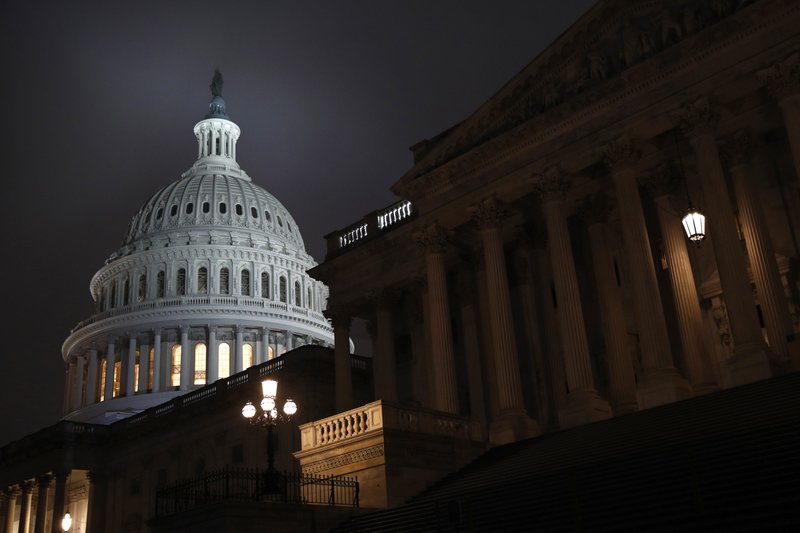The White House endorsed an emerging bipartisan agreement Monday on legislation aimed at curbing rising health care costs, including taking steps to limit “surprise” medical bills that can plague patients treated in emergency rooms.
While the deal’s fate remained uncertain, enactment would give President Donald Trump and lawmakers of both parties a chance to crow about a rare legislative achievement during a bitterly divisive period dominated by Democrats’ drive toward impeaching Trump.
House and Senate participants said the measure would establish a system of arbitration aimed at resolving disputes over surprise bills, which can occur when patients are unwittingly treated by providers from outside their insurance networks.
It would also raise the federal minimum age for buying tobacco products to 21 from its current 18. It would provide $20 billion over five years to finance community health centers, which provide medical care to millions of lower-earning people in thousands of towns, and take steps toward limiting the growth of prescription drug prices.
In a written statement, White House press secretary Stephanie Grisham said the measure represents “months of delicate work” and expressed hope that Congress would approve it this year. Steadily growing medical costs have been a major problem that have angered voters for years, and lawmakers would love to be able to assert they’ve addressed it as next November’s presidential and congressional elections approach.
Congress is scheduled to remain in session for two more weeks before adjourning for the year, and it is uncertain if the bill can be approved within that window. During this period, the Democratic-led House will be moving toward approving articles of impeachment against Trump while lawmakers will also work on legislation aimed at preventing a government shutdown and financing federal agencies until next fall.
The measure would limit some out-of-pocket costs for patients facing surprise bills. It would let health care providers or insurers seek binding arbitration to resolve some disputes over costs.
It would also take steps aimed at increasing prescription drug price competition, such as limiting the time that generic drug makers can block competitors from the market.
The agreement was announced Sunday by Sen. Lamar Alexander, R-Tenn., chairman of the Senate health committee; Rep. Frank Pallone, D-N.J., chairman of the House Energy and Commerce Committee; and Rep. Greg Walden, R-Ore., top Republican on the House panel.
Alexander said in a statement that he doubted a bill could be produced with broader agreement “on Americans’ number one financial concern: what they pay out of their own pockets for health care.” Pallone said the measure “puts an end to this egregious billing practice,” while Walden said Americans are “sick and tired” of the problem and want lawmakers to act.
The top Democrat on the Senate health committee, Sen. Patty Murray of Washington, did not join the others in announcing the pact.
In a written statement, a spokeswoman said Murray “is working through members’ concerns” and hoped agreement could be reached to end surprise billing “without shifting costs back onto patients in other ways.”
(AP)












One Response
Bipartisan, wonder if Moscow Mitch will shelve it like he has hundreds of other pieces of legislation.